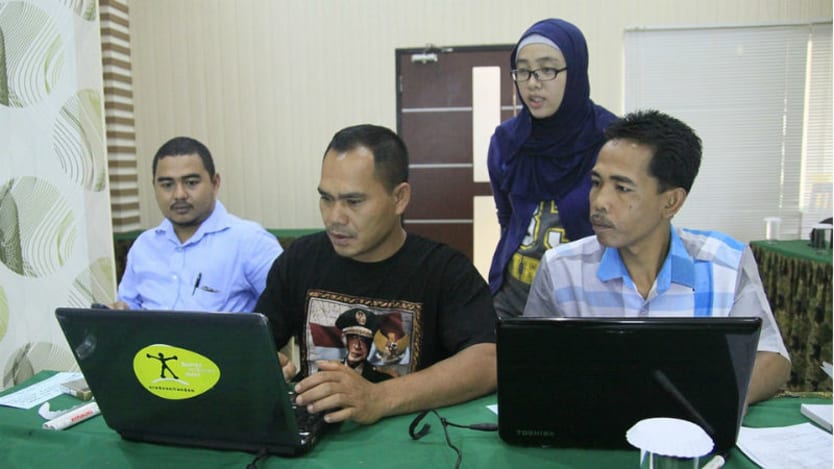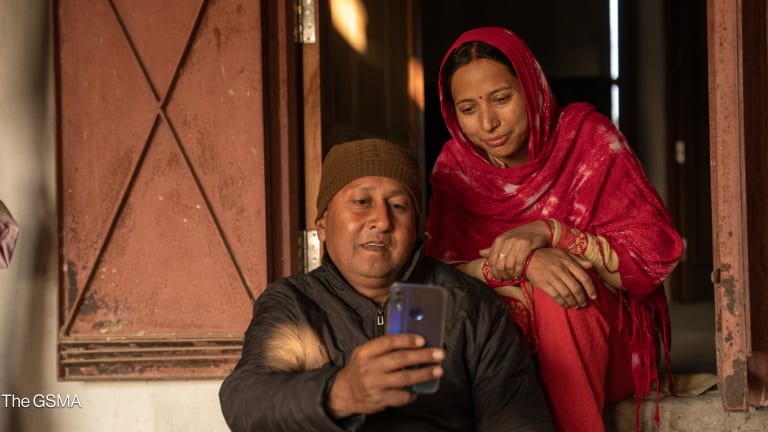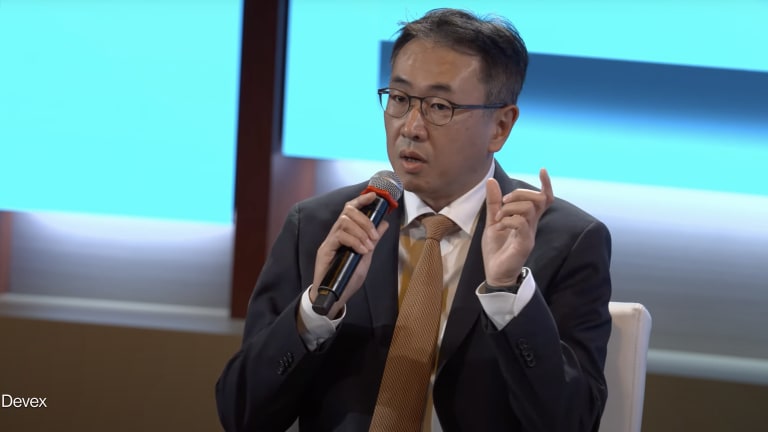Opinion: Internet inclusion is meaningless without digital literacy

Roughly 52 percent of the world remains offline. With the internet shouldering more of the global economy — as well as education, agriculture, health care, and government services — the world’s unconnected are being left further and further behind. The risk of creating a “Fourth World” is very present.
The world’s unconnected need connectivity now, and, just as importantly, they need the knowhow to use it — or “digital literacy.” The great promise of internet inclusion from a development standpoint lies in empowering the newly connected to leverage the internet to create, think, and do in their own contexts, and to help accelerate their economic growth and well-being.
The contributions of development professionals from around the globe are needed to ensure digital literacy programs are implemented in parallel with efforts to connect the world’s unconnected. Put simply, it’s not enough to have the internet — people need to be able to use it too, and development professionals can help.
The future of the internet is nothing without digital literacy
How to achieve internet for all: What we learned in 2017
At the end of a year of conferences and reports taking on the challenge of how to extend affordable internet access to the 60 percent of the world's population who remain unconnected, Devex rounds up some of the key ideas that emerged.
One of the concerns increasingly voiced in the intensifying internet inclusion conversation is that there is no meaningful connectivity without digital literacy. Getting people physically connected to the internet is just one piece of the puzzle — progress won’t advance on development or the other benefits envisioned via internet inclusion without a digitally literate user base.
If we limit our vision of internet inclusion to merely rolling out raw connectivity everywhere around the world, the risk of polarization among groups of people remains, or may even heighten. A 2015 GSMA study focusing on female users in India, Indonesia, and Kenya found that, “from entrepreneurship opportunities to affordable health care and peer learning platforms, mobile internet is beginning to empower women in inspiring ways. However, women continue to lag behind men in accessing mobile phones and mobile internet ... For women who are new or novice mobile internet users, low mobile literacy and a lack of digital skills are major barriers to harnessing the full potential of the internet.”
The gap between the world’s haves and have-nots stands to widen if first-time internet users do not know how to take advantage of the access they have been given — other than maybe to pass time or buy things — and to use it safely and securely. Without skills, the newly connected cannot benefit, and development cannot progress. On the other hand, if we successfully roll out digital literacy along with digital connectivity — enabling people to go from unconnected, to connected, to thriving by shrewdly interpreting information and creating their own ways to use digital tools most effectively in their own contexts — internet inclusion is destined to transform lives for the better.
Solomon Darwin, executive director at the Garwood Center for Corporate Innovation, part of the Haas School of Business at the University of California, Berkeley, spoke at the Internet Inclusion: Advancing Solutions event in Washington, D.C., organized by the IEEE Internet Initiative: “In every village in India, residents can get Nike shoes delivered by Amazon or find a shop in the most Godforsaken places selling a cold can of Coca-Cola ... but the lady who is making the beautiful sari in an Indian village can’t put it on the Internet to sell to people in other countries.”
How global development professionals can feed this mission
Development professionals have a key role in ensuring that the world’s unconnected people receive the digital literacy training they need, in parallel with connectivity. Multilateral development banks and other donors can mandate funding for digital literacy in internet inclusion projects. Furthermore, it is incumbent upon development professionals to include digital literacy programs that could extend economic, social, and political empowerment to women and other underserved communities at the bottom of the pyramid.
Development professionals themselves can look to work with local partners, such as libraries or other anchor institutions which benefit from trust and familiarity with locals, and can offer a great venue for digital literacy efforts. They can draw on existing resources from a variety of public and private sources to deliver a tailored curriculum for users — perhaps via a persona-based approach. They can help locals engage with international initiatives to promote coding and the conversion of digital skills into new opportunities. And they can contribute to the effectiveness of projects worldwide by continuing to gather data and experience to share more broadly.
Certainly there are some impressive case studies we can look to from organizations around the world — from an app factory leveraging TV white spaces for connectivity and solar power for sustainable energy at a refugee camp in Malawi, to a tremendous range of inventive digital literacy programs through the world’s libraries showcased by the International Federation of Library Associations and Institutions. One such project, for example, pairs teen immigrants with Swedish elderly to improve the teens’ language skills and the elderly’s digital literacy.
The modern printing press has existed since about 1440, and we still have not cracked universal literacy. Surely, we can move more quickly on digital literacy to ensure the development potential of today’s internet inclusion movement is not squandered.
Read more Devex coverage on ICT4D.
Search for articles
Most Read
- 1
- 2
- 3
- 4
- 5









